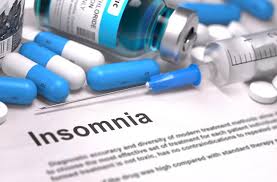- Home
- Editorial
- News
- Practice Guidelines
- Anesthesiology Guidelines
- Cancer Guidelines
- Cardiac Sciences Guidelines
- Critical Care Guidelines
- Dentistry Guidelines
- Dermatology Guidelines
- Diabetes and Endo Guidelines
- Diagnostics Guidelines
- ENT Guidelines
- Featured Practice Guidelines
- Gastroenterology Guidelines
- Geriatrics Guidelines
- Medicine Guidelines
- Nephrology Guidelines
- Neurosciences Guidelines
- Obs and Gynae Guidelines
- Ophthalmology Guidelines
- Orthopaedics Guidelines
- Paediatrics Guidelines
- Psychiatry Guidelines
- Pulmonology Guidelines
- Radiology Guidelines
- Surgery Guidelines
- Urology Guidelines
New guideline provides clinical recommendations for specific insomnia drugs

A new clinical practice guideline is the first from the American Academy of Sleep Medicine to provide comprehensive, evidence-based analyses of individual agents commonly used in the treatment of chronic insomnia disorder.
The guideline, which is published in the issue of the Journal of Clinical Sleep Medicine, provides recommendations to help clinicians choose a specific pharmacological agent for the treatment of chronic insomnia in adults, when such treatment is indicated. Developed by an expert task force and approved by the AASM board of directors, the guideline was based on a systematic literature review, meta-analyses, and assessment of the evidence using the GRADE methodology. A draft of the guideline was previously made available for public comment.
"The publication of this clinical practice guideline is an important step forward for the field of sleep medicine," said AASM President Ronald D. Chervin, MD, MS. "It further equips clinicians to provide high quality, patient-centered care for millions of people who suffer from chronic insomnia."
Although transient insomnia symptoms occur in 30 to 35 percent of the population, the full clinical syndrome of chronic insomnia disorder occurs in about 10 percent of people. The CDC has estimated that 4.1 percent of U.S. adults report having taken a prescription sleep aid in the past month, based on survey data collected from 2005 - 2010.
The clinical practice guideline includes 14 specific recommendations for individual agents, including prescription medications such as zolpidem and eszopiclone; over-the-counter medications such as diphenhydramine; and dietary supplements such as melatonin and valerian. Each recommendation suggests whether clinicians should or should not use the individual drug for sleep onset insomnia or sleep maintenance insomnia, versus no treatment. However, the guideline does not recommend one drug over another since few comparative efficacy studies have been conducted among these agents.
The authors noted that the data available to support these recommendations is often less than certain. As a result, the strength of each recommendation is classified as "weak," reflecting a lower degree of certainty in the appropriateness of the patient-care strategy. Therefore, clinicians must continue to exercise sound clinical judgment in their care for patients with chronic insomnia. Decisions should be based not only on these recommendations but also on a clinician's experience and the individual circumstances presented by the patient.
The guideline emphasizes that medications for chronic insomnia disorder should be considered mainly in patients who are unable to participate in cognitive behavioral therapy for insomnia (CBT-I), patients who still have symptoms after this therapy, or those who require a temporary adjunct to CBT-I. A clinical guideline previously published by the American Academy of Sleep Medicine indicates that CBT-I is an effective treatment that should be utilized as an initial intervention for chronic insomnia, and this position was reiterated by the AASM in a 2014 Choosing Wisely statement.

Disclaimer: This site is primarily intended for healthcare professionals. Any content/information on this website does not replace the advice of medical and/or health professionals and should not be construed as medical/diagnostic advice/endorsement or prescription. Use of this site is subject to our terms of use, privacy policy, advertisement policy. © 2020 Minerva Medical Treatment Pvt Ltd